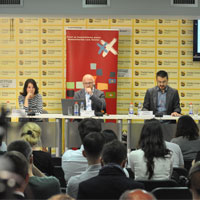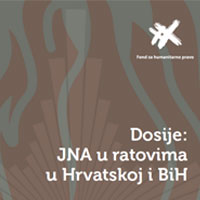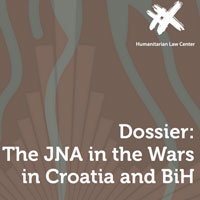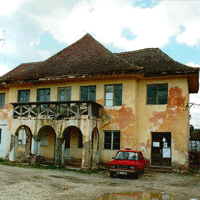Jović: The war in Yugoslavia was a war against minorities


On June 15, 2018, the Humanitarian Law Center (HLC) presented its tenth Dossier: “The JNA in the wars in Croatia and Bosnia and Herzegovina“. As the most extensive so far, this Dossier has been covering the period from the end of the 1980s up to May 1992. It explores how the JNA and the political leadership of the Socialist Federative Republic of Yugoslavia (SFRY) and of Serbia prepared for the wars, the JNA’s involvement in the conflicts, and its contribution to achieving the wartime goals of Serbia, the Republic of Serbian Krajina and Republika Srpska.
Nemanja Stjepanović from the HLC said that the goal of the Dossier was to point to the crimes committed during the armed conflicts in Croatia and Bosnia and Herzegovina, and to the responsibility of the perpetrators and initiators, as well as to place these events in a wider historical context for a better understanding of them. The Dossier illuminates the process of the restructuration of the JNA from the Yugoslav into the Serbian army, its transformation as the focus of its activities changed, the alterations of national structures within the JNA, and, finally, the partiality it showed in dedicating itself to the goal of “defending the Serb people”. A survey the HLC conducted, presented within this Dossier, showed that “defence” was reduced exclusively to the conquest of the territory.







 The role of the Yugoslav People’s Army (JNA) in the wars in Croatia and Bosnia and Herzegovina (BiH) and its transformation from the Yugoslav into the Serbian army, is the subject of this, the tenth Dossier of the Humanitarian Law Center (HLC). It is the most extensive of the HLC Dossiers so far, covering the period from the end of the 1980s up to May 1992. It explores how the JNA and political leadership of the Socialist Federative Republic of Yugoslavia (SFRY) and Serbia prepared for the wars, the JNA’s involvement in the conflicts, and its contribution to achieving the wartime goals of Serbia, the Republic of Serbian Krajina and Republika Srpska.
The role of the Yugoslav People’s Army (JNA) in the wars in Croatia and Bosnia and Herzegovina (BiH) and its transformation from the Yugoslav into the Serbian army, is the subject of this, the tenth Dossier of the Humanitarian Law Center (HLC). It is the most extensive of the HLC Dossiers so far, covering the period from the end of the 1980s up to May 1992. It explores how the JNA and political leadership of the Socialist Federative Republic of Yugoslavia (SFRY) and Serbia prepared for the wars, the JNA’s involvement in the conflicts, and its contribution to achieving the wartime goals of Serbia, the Republic of Serbian Krajina and Republika Srpska.









 On 25-26 March 2018, the Global Initiative for Justice, Truth and Reconciliation (GIJTR), of which the Humanitarian Law Center is a member, organized the Global Reparations Summit in Belgrade, Serbia.
On 25-26 March 2018, the Global Initiative for Justice, Truth and Reconciliation (GIJTR), of which the Humanitarian Law Center is a member, organized the Global Reparations Summit in Belgrade, Serbia. 